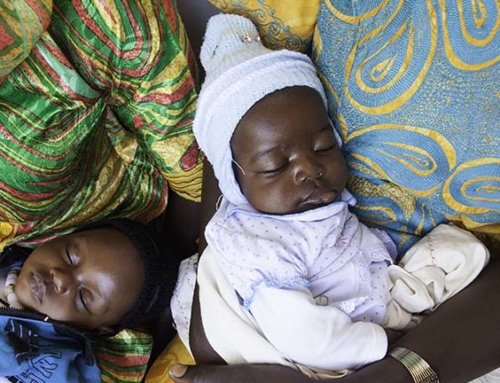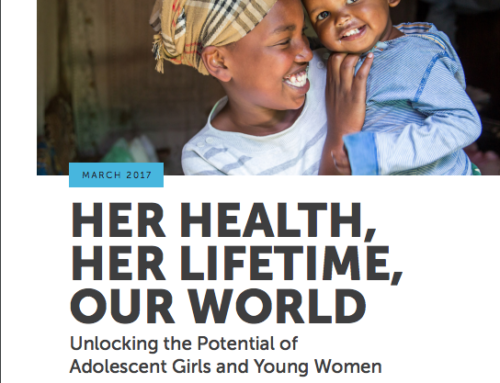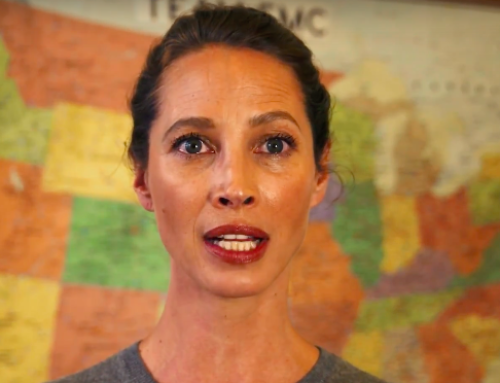“Ending preventable maternal and child death is an admirable goal that we can all be proud of….But we need to get to a place as a country where we view this goal with the same commitment and determination as when we went to the moon.”
That powerful message was delivered by Ryan Kaldahl, a foreign policy advisor to Senator Susan Collins (R-ME) at a CSIS event on October 20. The event marked the launch of a new Lancet series on maternal health, with a panel discussion about the implications for U.S. policy. The featured speakers were Dr. Margaret Kruk, associate professor of global health at the Harvard T.H. Chan School of Public Health; Dr. Elizabeth Fox, director of the office of infectious diseases and deputy coordinator for maternal and child survival at USAID; Dr. Mariam Claeson, director of the Global Financing Facility at the World Bank; and Mr. Kaldahl.
The panel discussion emphasized the importance of this moment in prioritizing maternal health, an area directly related to the work of the CSIS Task Force on Women’s and Family Health, of which Senator Collins is a member. In addition to examining the global progress made in reducing maternal mortality and the critical role that USAID has played in that effort, the panelists highlighted new elements that could contribute to consolidating these gains and identified some of the challenges ahead. These include the need to address quality of care, to mobilize sustainable financing, and especially to reach the 53 million women and girls not receiving childbirth care at all –adolescents and unmarried women, refugees and migrants, and those living in fragile or conflict states.
Dr. Kruk, one of the authors in the Lancet series, focused on what has changed in the ten years since the previous series on maternal health. She noted that the series tells a story of tremendous progress, but also of divergence, with many women and girls being left behind. So while the world has seen a 44 percent reduction in maternal mortality since 1990, critical challenges remain: 1 in 4 babies are still born without medical assistance, and even for those women who can access health care, the quality of care is often substandard. As she noted, “Skilled birth attendance is not a proxy for good care.” She furthered that “The gap between maternal mortality in the top ten and the bottom ten countries in the world today is larger than it was in 1990 – it’s 200 fold. We live in a world where women face extremely different risks, purely due to the accident of their birth. And it’s just not acceptable anymore, and that’s what this series tries to address.”
In order to respond to these gaps, Dr. Kruk called for the U.S. to invest in health systems for the long term, and to look beyond coverage numbers to address quality of care. She also emphasized the importance of putting maternal and newborn health in the broader context of family planning, women’s rights, and respectful care.
USAID has been a global leader in supporting maternal health, concentrating on 25 priority countries that account for two-thirds of global maternal mortality and half of the unmet need for family planning. Dr. Fox underscored the need to address quality of care across the system as well as equity, noting that by focusing on the lowest quintiles of the population, “the impact on reducing maternal mortality is enormous.” Dr. Fox highlighted USAID’s investments in the Saving Mothers Giving Life programs in Zambia and Uganda, which have shown that a systems approach can reduce maternal mortality substantially.
A particular challenge involves sustainable financing for maternal and child health, which requires greater mobilization of both donor and domestic resources. Dr. Claeson discussed the Global Financing Facility, a new mechanism housed at the World Bank that seeks to mobilize and harmonize funding in support of a country’s investment case for reproductive, maternal, newborn, child, and adolescent health (RMNCAH). On the congressional front, Mr. Kaldahl discussed the Reach Every Mother and Child Act, bipartisan legislation that Senator Collins has co-sponsored in the Senate, which seeks to address sustainable financing for maternal and child health through innovative financing, and calls for a strategy to achieve the goal of ending preventable maternal and child deaths by 2035. He underscored that better use of innovative financing will be crucial, since further U.S. support could be impeded by the Budget Control Act and the constraints imposed by sequestration.
This Lancet series shines a spotlight on the issue of maternal health, but we know that there is no quick fix or magic bullet. As the panelists illustrated, the global health community needs to take the ideas and evidence about what works into action, to make these programs practical and scalable, and to hold governments and donors accountable. Even with new commitments from low- and middle-income countries to allocate greater financial resources to maternal health, there is a significant risk that progress will stall. As Dr. Kruk put it, “Accountability links to the data and the information, and to holding governments – not just health ministries, but finance ministries – accountable for the progress or the lack of progress on maternal, newborn and child health.”






